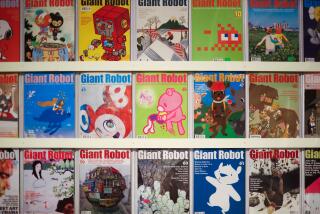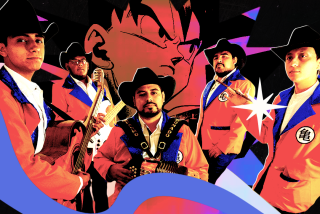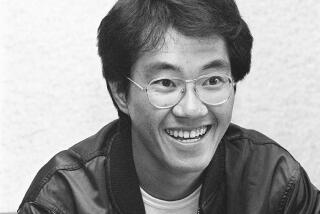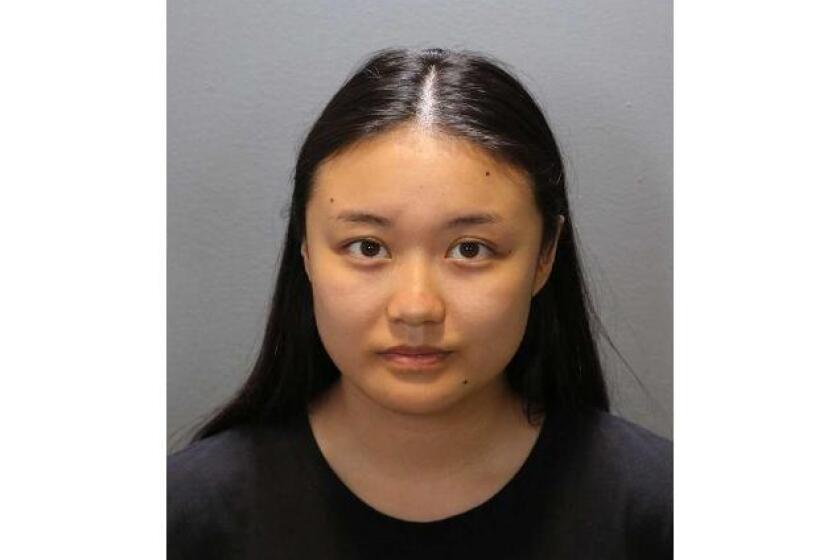Rodney Kageyama, actor and beloved Little Tokyo icon, dies at 77
Performing the Ondo dance during Little Tokyo’s Nisei Week with Rodney Kageyama was not the best idea if you wanted your moves to be precise.
During the graceful and traditional dance performed during the annual festival celebrating Japanese American culture and history in downtown Los Angeles, Kageyama offered his own interpretation, moving this way and that, throwing off everyone’s choreography and making participants burst out laughing.
For the record:
6:45 p.m. Dec. 13, 2018A previous version of this article said Kageyama and White married in 2015 when same-sex unions were legalized in the United States. They wed in 2013 when California made them legal.
The Little Tokyo icon danced to his own beat, always, said Jan Perry, general manager of Los Angeles’ Economic and Workforce Development Department.
Kageyama died in his sleep early Sunday after a long struggle with numerous health issues, including HIV, according to his husband, Ken White. He was 77.
Over the last several decades, the actor and activist was a regular at events such as Nisei Week. He was Little Tokyo’s emcee of choice for community gatherings, and in the coming weeks, he had planned to continue the tradition of acting as Shogun Santa — the neighborhood’s Japanese Santa Claus. He also volunteered regularly at the Japanese American National Museum.
Kageyama also was a trailblazer for Asian Americans in Hollywood, acting in the “Gung Ho” film and television series and in the second and fourth editions of the “Karate Kid” franchise.
Before acting, Kageyama was into arts and crafts, and he worked on sets and costume design in college. But after a teacher asked him to fill in for another student during a play, Kageyama never looked back.
“He said, ‘Can you do these two lines?’” Kageyama said in a 2016 interview with Ken Fong for the “Asian America” podcast. “I go, ‘I’m not an actor.’ But I went in, did it, got the applause. ... It was like, I want it all! To hell with arts and crafts, I want to be an actor!”
Kageyama was an original member of the Asian American Theater Company and attended the American Conservatory Theater in San Francisco before moving to Los Angeles in 1979, when he joined East West Players as an actor and director. His acting career didn’t bring him long-lasting and glamorous fame, but it supported him financially and he earned his moment of glory.
San Francisco in the 1970s was an exciting time for Asian Americans in entertainment, and Kageyama was part of building those early stories and roles in theater, film and TV, said Amy Hill, a friend and actress who worked on “50 First Dates” and “Crazy Ex-Girlfriend.” It was a time when actors were building the foundation for the wild successes of films such as “The Joy Luck Club and “Crazy Rich Asians.”
“Sketch comedy was a thing I didn’t even know existed,” Hill said. “He introduced me to Asian American theater.”
Hill remembers meeting Kageyama her first day at the theater company. He was directing the show and played the part — wearing a beret and scarf and flamboyantly bossing people around.
“He was a tiny little Napoleonic father figure,” she said, laughing at the memory. “Tiny and bossy!”
Navigating Hollywood wasn’t easy in the 1980s, Kageyama recalled in his interview with Fong, calling it a “white people industry” and “racist.” But he spoke of adding depth to the stereotypical roles he was asked to do.
“What else could we do? That’s all there was,” he told Fong. “If it wasn’t for us, you would not be here.”
Kageyama spoke publicly about his struggles as a young gay man, but they did not keep him from being unabashedly and fiercely himself. He met White in a San Francisco bar in 1979, and they moved to Los Angeles together soon after. They married when California legalized same-sex unions in 2013.
The two were polar opposites, said White, a self-described introvert who said he was in awe of Kageyama’s ability to maintain hundreds of close friendships.
“He courted me,” White said. “On my birthday, he took me out to dinner at a restaurant along the Embarcadero. He had a gift. He was a perfect date.”
Kageyama’s persona defied the odds, said Ellen Endo, a Little Tokyo Community Council board member.
“He was rather short,” she said. “He didn’t have all the ‘actor attributes’ that we think of today.”
And while Japanese culture emphasized reserved politeness, Kageyama was anything but.
White recalled his husband lecturing him about how he should give Japanese guests a chance to say, “No,” three times before they say, “Yes.” But Kageyama wasn’t like that, White said. He wasn’t afraid to ask for help or to barge into a room, loudly and cheerfully.
In his later years, Kageyama began slowing down. He lived with HIV for decades, taking a daily regimen of pills, and suffered from a kidney illness. He was on dialysis for several years before his death and walked with a cane after he had both hips replaced.
Recognizing this physical shift in his life, Kageyama made a deliberate attempt to become a part of the Little Tokyo community in the 1990s, publicizing himself as an emcee and entertainer at events around the city, White said. Kageyama’s only family at the time were his grandparents, and he grew more and more attached to the extended family he created in Little Tokyo.
And despite being in and out of hospitals, Kageyama always seemed to bounce back.
“He kept going. It was crazy to watch him,” Hill said.
Illnesses and age would soon catch up to him, though, and in Facebook posts, Kageyama began documenting his health experiences with a new sense of mortality, Endo said. He was baptized a few years ago in the Centenary United Methodist Church and choked up during a speech at a reception afterward.
In a phone call a week before his death, Kageyama told Endo: “I’m on my last legs.”
“He asked me if people thought that,” Endo said.
Ultimately, though, he’d be pleased to know his Little Tokyo family was behind him, Hill said.
“He loved the attention.”
Kageyama is survived by his husband. A public memorial is scheduled for Jan. 12 at the Nishi Hongwanji Buddhist Temple in Los Angeles.
alejandra.reyesvelarde@latimes.com
Twitter: @r_valejandra
More to Read
Start your day right
Sign up for Essential California for news, features and recommendations from the L.A. Times and beyond in your inbox six days a week.
You may occasionally receive promotional content from the Los Angeles Times.







